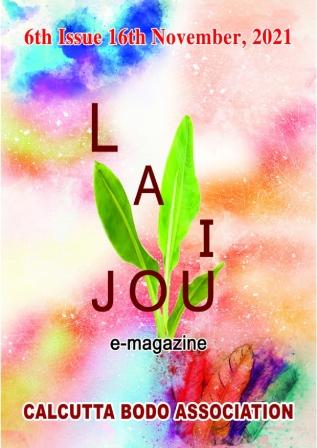Welcome to the official website of the Calcutta Bodo Association.
Brief History of Bodo (Mech) People:
The most important Mongoloid people in Eastern India were and are the Bodos. They are of Sino-Tibetan origin. They are believed to be migrants from the ancient Northwestern China and their language belongs to Tibeto-Burman language family. The date of migration from their original seat to Eastern India is not accurately known. However it is now accepted that the Bodo people settled in this region long before the advent of the Aryans. It is said that Mairong Raja, which name was sanskritised as Mahiranga, was the first king of Pragjyotish – ancient name of modern Assam. He belonged to Mech (Bodo) race. The country of Pragjyotish produced famous Bodo kings like Narak and his son Bhagadatta. King Bhagadatta fought the Great War of Mahabharata with his Bodo and other tribal soldiers. The Bodos ruled under various dynastic names like Varman Dynasty, Mech Dynasty, Pal Dynasty, Kachari Dynasty, Manikya Dynasty of Tripura, Khen Dynasty and Mech Dynasty of Koch Behar. Among the historic Bodo kings of Kamrup, Bhaskarvarman excelled in name and fame. He was the worthy contemporary of Emperor Harshavardhan and the famous Chinese pilgrim-scholar Hiuen Tsiang. Mech king Nara Narayan of Behar (later called Cooch Behar) was a mighty king in Eastern India. He was worthy contemporary of Emperor Akbar of Delhi.
Language spoken by the Bodos is known as Bodo which was once the lingua-franca of Eastern India and Northern India. This language suffered great setback with the introduction of Sanskrit as a medium of instructions and Sanskrit became the literary pursuit of the time. It may be noted that when Bengali language and Bengali nation was not born Bodo was a flourishing language in Eastern India. However, Bodo language remained spoken language only for centuries until the middle of the 20th century. With the birth of Bodo Sahitya Sabha in 1952, Bodo language became alive and since then it rapidly grew and developed. At length in 2003 Bodo was recognized as one of the National Languages of India when it was included in the Eighth Schedule of the Constitution of India.
The Bodos of West Bengal are scheduled as Mech under the Indian Constitution (Scheduled Tribe) Order 1950. They share common origin, language and culture with greater Bodos inhabiting Assam, Tripura, Nagaland, Arunachal Pradesh, Bangladesh, Bhutan, Nepal and Myanmar (Burma). The Bodos are a peace loving friendly people and their rich culture and literature are admired by the people all over India and abroad.
The Calcutta Bodo Association:
The Calcutta Bodo Association was formed in 1975. This is a non-political and non-religious organization. The main objective of this organization is to bring all the Bodo speaking people living in Kolkata to one platform to promote the Bodo Language, Culture, and Literature through sustained socio-economic development. It also aims at instilling a sense of interconnectedness among the members.
Apart from observing 16th November every year as Bodo Literary Day, the Association publishes a bilingual Annual literary journal called LAIJOU. It organizes at the beginning of every year a social get-together by holding Picnic in which both old and young Bodos, men and women, actively take part. However, the Bodos living in and around Kolkata did not forget their age-old festival called Baisagu (Bodo New Year Day) held on the first day of the month of Baishak (middle of April). On this day they assemble together at any available popular Hall on hire in the City of Kolkata, make merry, and welcome the New Year bidding farewell to the old.
